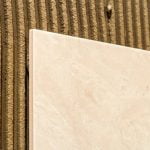Are you wondering, “can I deduct home improvement costs on taxes“? Many homeowners are unaware of the potential tax benefits for home improvement projects. In this article, we will explore the ins and outs of deducting home improvement costs on taxes, including what expenses qualify, eligibility requirements, limitations, and steps for documenting and calculating these costs. By understanding the tax implications of home improvements, you can make informed decisions to maximize your potential tax deductions.
When it comes to taxes, it’s essential to know what expenses are considered home improvement costs for tax deductions. From renovations and repairs to energy-efficient upgrades, there are various expenses that may qualify for tax deductions. Understanding which costs can be deducted can help you take advantage of potential tax savings when filing your taxes.
In addition to identifying eligible expenses, homeowners must also meet specific eligibility requirements to claim home improvement costs on taxes. These requirements may include owning and occupying the property as a primary residence and meeting certain criteria for the type of improvements made. It’s crucial to understand these eligibility requirements to ensure that you qualify for tax deductions on your home improvement expenses.
What Are Considered Home Improvement Costs for Tax Deductions?
When it comes to tax deductions, understanding what expenses can be considered as home improvement costs is crucial. In the United States, the Internal Revenue Service (IRS) allows certain home improvement expenses to be deducted from your taxes. These deductions can help homeowners save money and offset the costs of making improvements to their properties.
To qualify as home improvement costs for tax deductions, the expenses must be related to making a capital improvement to your property. This can include renovations, additions, or upgrades that increase the value of your home or prolong its useful life. Examples of eligible home improvement costs may include remodeling a kitchen or bathroom, adding a new roof or HVAC system, installing energy-efficient windows or doors, and making accessibility modifications for disabled individuals.
It’s important to note that general repairs and maintenance typically do not qualify as deductible home improvement costs. Repairs such as fixing a leaky faucet or repainting walls are considered ongoing upkeep and are not eligible for tax deductions.
However, if these repairs are part of a larger home improvement project that meets the IRS criteria, they may be included in the deduction. Understanding the distinction between repairs and improvements is essential when determining which expenses can be claimed on your taxes.
Ultimately, determining what qualifies as deductible home improvement costs can be complex and it’s important to seek guidance from a qualified tax professional if you have any doubts about whether specific expenses meet IRS requirements. Their expertise can help ensure that you accurately claim eligible costs while maximizing your potential tax savings.
Eligibility Requirements for Claiming Home Improvement Costs on Taxes
When it comes to claiming home improvement costs on your taxes, there are certain eligibility requirements that you need to meet in order to qualify for deductions. First and foremost, the IRS states that the home you are making improvements to must be your primary residence in order to be eligible for tax deductions. This means that any improvements made to a vacation home or rental property may not be eligible for tax deductions.
Additionally, the improvements made must add value to your home or prolong its useful life. This includes renovations such as adding a new roof, installing energy-efficient windows, or remodeling a kitchen. Regular maintenance and repairs, such as fixing a leaky faucet or repainting walls, are not considered eligible for tax deductions.
Furthermore, in order to claim home improvement costs on your taxes, you must be able to provide documentation of the expenses incurred. This includes keeping receipts, invoices, and any other relevant records that prove the costs of the improvements. Without proper documentation, you may not be able to qualify for tax deductions related to your home improvement expenses.
Finally, it is important to note that there may be specific limitations and restrictions on deducting certain home improvement costs on taxes. It is advisable to consult with a tax professional or accountant who can provide guidance based on your individual circumstances and ensure that you are complying with all IRS regulations regarding deducting home improvement costs on taxes.
| Eligibility Requirements | Description |
|---|---|
| Primary Residence | The home being improved must be the taxpayer’s primary residence. |
| Add Value | The improvements made must add value to the home or prolong its useful life. |
| Documentation | Proper documentation of expenses incurred is necessary in order to claim tax deductions. |
Limitations and Restrictions on Deducting Home Improvement Costs
When it comes to deducting home improvement costs on taxes, there are several limitations and restrictions that homeowners need to be aware of. While it is possible to claim certain home improvement expenses as tax deductions, not all costs will qualify for this benefit. Understanding these limitations can help ensure that you are accurately claiming the deductions you are eligible for without facing any potential consequences.
One important limitation to consider is that only home improvements that increase the value of your property may be eligible for tax deductions. This means that general repairs and maintenance, such as fixing a leaky faucet or repainting a room, typically do not qualify. However, renovations that contribute to the overall value of your home, such as adding a new bathroom or renovating the kitchen, can potentially be claimed as tax deductions.
Additionally, homeowners should be aware that there are specific eligibility requirements for claiming home improvement costs on taxes. In order to qualify for these deductions, the improvements must be considered “capital improvements” by the IRS. This means that they must have a lasting impact on the value of the property rather than being temporary or routine in nature.
| Limitations and Restrictions | Deducting Home Improvement Costs |
|---|---|
| Only improvements that increase property value may be eligible | General repairs and maintenance usually do not qualify |
| Improvements must be considered “capital improvements” by the IRS | Must have lasting impact on property value |
Steps to Documenting and Calculating Home Improvement Costs for Tax Deductions
When it comes to deducting home improvement costs on taxes, proper documentation and accurate calculation is essential to ensure that you are eligible for any potential tax benefits. Here are some important steps to consider when documenting and calculating home improvement costs for tax deductions.
Keep Detailed Records
To support your claim for tax deductions on home improvement costs, it is crucial to keep detailed records of all expenses related to the projects. This includes receipts, invoices, contracts, and any other relevant documentation. Be sure to clearly identify which expenses are specifically for home improvements and not general repairs or maintenance.
Calculate Eligible Expenses
When calculating home improvement costs for tax deductions, it’s important to determine which expenses qualify. Generally, eligible expenses include the cost of materials, labor, permits, and certain fees related to the improvement project. However, it’s important to consult with a tax professional or refer to IRS guidelines to ensure that you are accurately categorizing your expenses.
Seek Professional Guidance
Given the complexity of tax laws and regulations regarding deductions for home improvement costs, it’s highly advisable to seek professional guidance from a certified accountant or tax advisor. They can provide valuable insights into what expenses can be deducted and how best to document them in accordance with IRS requirements.
By following these steps and seeking professional assistance when necessary, you can better navigate the process of documenting and calculating home improvement costs for potential tax deductions effectively.
Remember that accuracy and completeness in your documentation will play a crucial role in ensuring that you can deduct as much as possible from your home improvement projects come tax time.
Other Tax Benefits for Home Improvements
When it comes to home improvement costs, many homeowners wonder, “can I deduct home improvement costs on taxes?” While not all home improvement expenses are eligible for tax deductions, there are other tax benefits that homeowners can take advantage of. Here are some additional tax benefits for home improvements:
1. Energy Efficiency Tax Credits: Investing in energy-efficient home improvements such as installing solar panels, energy-efficient windows, or insulation can qualify you for a tax credit. The federal government offers these tax credits as an incentive for homeowners to make eco-friendly upgrades to their homes.
2. Medical Home Improvements: If you make home improvements to accommodate a medical condition or disability, you may be able to deduct those expenses as medical deductions on your taxes. This includes modifications such as adding wheelchair ramps, handrails, or widening doorways to accommodate a wheelchair.
3. Home Office Expenses: If you use part of your home exclusively for business purposes, you may be able to deduct a portion of your home improvement costs as business expenses. This includes renovations or repairs made to the area used for business.
It’s important to note that each of these tax benefits has specific eligibility requirements and limitations. Before attempting to claim any of these benefits on your taxes, it’s advisable to consult with a tax professional who can provide guidance on what qualifies and how to properly document and report these expenses on your tax return.
Remember that while certain types of home improvements may offer potential tax benefits, not all expenses will qualify for deductions or credits. Be sure to keep detailed records and receipts for all eligible home improvement costs in order to support your claims if the IRS ever requests documentation.
Tips for Maximizing Tax Deductions for Home Improvement Costs
When it comes to maximizing tax deductions for home improvement costs, there are several tips and strategies that can help homeowners make the most of their eligible expenses. Here are some key considerations to keep in mind:
Keep Detailed Records and Receipts
One of the most important tips for maximizing tax deductions for home improvement costs is to keep detailed records and receipts for all expenses related to the improvements. This includes invoices from contractors, receipts for materials, and any other documentation that demonstrates the costs incurred. By maintaining thorough records, homeowners can provide evidence of their eligible expenses in the event of an audit or inquiry from the IRS.
Understand Eligible Expenses
It’s crucial for homeowners to have a clear understanding of what expenses are considered eligible for tax deductions. Generally, costs associated with improving the condition or value of a home can be deductible, such as renovations, additions, landscaping, and certain energy-efficient upgrades. However, maintenance and repairs typically do not qualify unless they are part of a larger improvement project.
Consider Energy-Efficient Upgrades
Another tip for maximizing tax deductions is to prioritize energy-efficient upgrades when planning home improvements. The IRS offers specific tax credits for qualified energy-saving improvements, such as installing solar panels or energy-efficient windows. Taking advantage of these credits can not only lead to potential tax savings but also contribute to long-term cost savings on utility bills.
By following these tips and staying informed about the latest tax regulations, homeowners can maximize their deductions for home improvement costs while ensuring compliance with IRS guidelines.
Potential Risks and Consequences of Incorrectly Deducting Home Improvement Costs on Taxes
When it comes to deducting home improvement costs on taxes, it is important to be aware of the potential risks and consequences of incorrectly claiming these deductions. While it can be tempting to maximize your tax benefits, misreporting or misinterpreting the rules for home improvement deductions can lead to serious problems with the IRS.
Here are some potential risks and consequences you should be mindful of when considering deducting home improvement costs on taxes:
- Audits: If the IRS determines that you have inaccurately claimed home improvement deductions, it may trigger an audit of your tax return. This can result in additional taxes, penalties, and interest if discrepancies are found.
- Penalties: Incorrectly deducting home improvement costs on taxes can lead to penalties for underpayment or negligence. These penalties can add up quickly and result in significant financial consequences.
- Legal Issues: Deliberately falsifying information or attempting to deceive the IRS when claiming home improvement deductions can lead to legal repercussions, including fines and even criminal charges.
It is essential to understand and comply with the rules and regulations regarding tax deductions for home improvements to avoid these potential risks and consequences. Seeking advice from a tax professional or accountant can help ensure that you are accurately reporting your home improvement costs and maximizing your tax benefits without running afoul of the law.
Conclusion
In conclusion, understanding the guidelines for deducting home improvement costs on taxes is crucial for homeowners looking to maximize their tax benefits. While it
By following the eligibility requirements and limitations, homeowners can make informed decisions about claiming home improvement costs on their taxes.
Additionally, documenting and calculating home improvement costs diligently is key to avoiding potential risks and consequences of incorrectly deducting expenses. Keeping detailed records of expenses, receipts, and invoices will help support any claims made during tax filing and prevent any issues with the IRS. Moreover, homeowners should explore other tax benefits for home improvements, such as energy-efficient upgrades or improvements that increase property value.
Ultimately, by being aware of potential risks and consequences of incorrect deductions, homeowners
Frequently Asked Questions
Can I Deduct Home Improvements on My Tax Return?
Home improvements are generally not tax deductible, as they are considered personal expenses. However, if the improvement adds value to your home or makes it more energy efficient, you may be able to recoup some of the costs when you sell your home.
Is Homeowners Insurance Tax Deductible?
In most cases, homeowners insurance premiums are not tax deductible. However, there are some exceptions for specific situations such as if part of your home is used for business purposes or if the insurance is related to a rental property.
Are Home Improvement Loans Tax Deductible?
Home improvement loans are typically not tax deductible unless they are used for home renovations that increase the value of your property. If the loan is used for general personal expenses or luxury items, it would not qualify for a tax deduction.

I’m thrilled to have you here as a part of the Remodeling Top community. This is where my journey as an architect and remodeling enthusiast intersects with your passion for transforming houses into dream homes.





